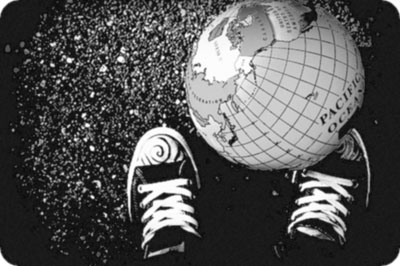All Nonfiction
- Bullying
- Books
- Academic
- Author Interviews
- Celebrity interviews
- College Articles
- College Essays
- Educator of the Year
- Heroes
- Interviews
- Memoir
- Personal Experience
- Sports
- Travel & Culture
All Opinions
- Bullying
- Current Events / Politics
- Discrimination
- Drugs / Alcohol / Smoking
- Entertainment / Celebrities
- Environment
- Love / Relationships
- Movies / Music / TV
- Pop Culture / Trends
- School / College
- Social Issues / Civics
- Spirituality / Religion
- Sports / Hobbies
All Hot Topics
- Bullying
- Community Service
- Environment
- Health
- Letters to the Editor
- Pride & Prejudice
- What Matters
- Back
Summer Guide
- Program Links
- Program Reviews
- Back
College Guide
- College Links
- College Reviews
- College Essays
- College Articles
- Back
#SecondWorldProbs
Correct me if I’m wrong but I’m pretty sure the hashtag #FirstWorldProbs has trended at least once in the last couple of months. I’ve seen friends of mine use it, I’ve scrolled through strangers’ tweets about it, and whether you think the hashtag is offensive or simply a funny joke that raises awareness to issues of developing countries, #FirstWorldProbs is something people use when they’re tweeting about how indecisive they are about which luxury makeup palette to get. There are so many other examples.
I too tweet about these “probs” but not being an avid hashtag user, I refrained from the phrase, until one random night when I thought to myself ‘Am I a true teenager if I never use hashtags, reference memes or spend hours watching vines?’ (That was sarcasm right there, but I still think something’s wrong with me because I’m not addicted to memes.) So I’m about to press the button that would send my late-night thoughts out in the twittersphere when I realize I can’t tweet it, it’s #politicallyincorrect. (That’s a hashtag I don’t recommend you scroll through.) I remembered I was part of the Second World.
You’re probably wondering what a Second World country is. I’m not offended by that. In fact, I’ve had worse experiences, such as when people asked me if my home country of Romania was in Africa. (It’s in Eastern Europe.) Eastern Europe, as well as Southern Europe and South-Central Asia are where most of Second World countries are located, which include former members of the Soviet Union and of Yugoslavia, as well as ex-communist states like China, or Romania.
I find that I deal with what I call ‘Second World problems’ (I’m not actually trying to start a hashtag) on a daily basis, especially in school, and some of these are facts I think people in First World countries should know of. Most importantly, we’re limited in what we can do or purchase or accomplish because our laws and our government and our educational system are trying to transform an old communist layout into something more modern and we’re doing that by blending the same old traditions with Western ideas.
That is simply not working. My generation is taking 20 different classes a school year and is expected to take a (mysterious as of yet) new version of the baccalaureate at the end of high school that would supposedly combine three different languages into one test, and three different sciences into another. I’m not saying that model of testing is wrong, I know it works in (Western) countries where students are taught to think that way, but we are being taught in completely different ways.
#SecondWorldProbs are important: we’re all trying to leave the past behind and evolve, become (approximately) equal to First World countries but we are unable to. In my country, officials aren’t hearing out students, parents or teachers when writing new curriculum, new laws. Evidently, that makes a lot of us want to continue our studies in more developed countries, where we would benefit more both personally and professionally, but because our courses and our exams are so different and close-minded, we usually have a disadvantage when applying to a university. There are many more issues similar to this in our countries, but what is critical is that our education systems get properly reformed. Third World problems are real, First World problems are (sort of) a joke, but please don’t leave out Second World problems.

Similar Articles
JOIN THE DISCUSSION
This article has 0 comments.

Third World Problems are real, First World Problems is a hashtag, but what are Second World Problems? What is the Second World? Here I am, trying to bring the problems of living in a Second World country to the surface.